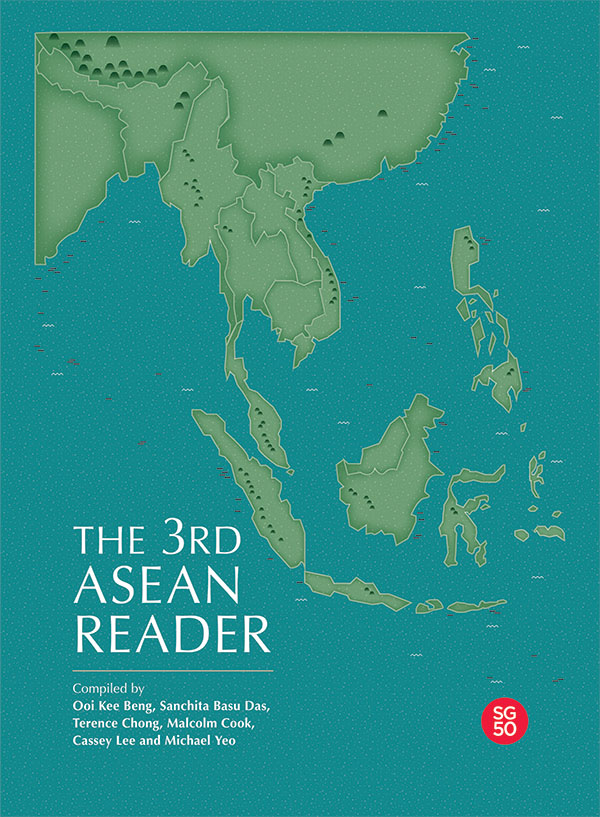Book contents
- Frontmatter
- Contents
- Preface
- Forewords to the First and Second ASEAN Reader: ASEAN: Conception and Evolution
- Forewords to the First and Second ASEAN Reader: ASEAN: The Way Ahead
- Forewords to the First and Second ASEAN Reader: New Challenges for ASEAN
- SECTION I ASEAN: THE LONG VIEW
- SECTION II COUNTRY ANALYSES
- SECTION III COMPARATIVE ANALYSES OF THE REGION
- Southeast Asian Societies
- The Southeast Asian Economy
- Southeast Asian Politics
- 20 Low-Quality Democracy and Varied Authoritarianism: Elites and Regimes in Southeast Asia Today
- 21 Social Foundations of Governance in Contemporary Southeast Asia
- 22 Decentralization and Democratic Governance in Southeast Asia: Theoretical Views, Conceptual Pitfalls and Empirical Ambiguities
- 23 Authority and Democracy in Malaysian and Indonesian Islamic Movements
- 24 Southeast Asia in the US Rebalance: Perceptions from a Divided Region
- SECTION IV INTERNATIONAL DEVELOPMENTS
- SECTION V INSTITUTIONS OF ASEAN
- SECTION VI ASSESSING ASEAN'S INTERNAL POLICIES
- ASEAN Political Security Community
- ASEAN Economic Community
- ASEAN Socio-Cultural Community
- SECTION VII ASSESSING ASEAN'S EXTERNAL INITIATIVES
- ASEAN Processes
- ASEAN's Major Power Relations
- SECTION VIII SOUTHEAST ASIA: PERIPHERAL NO MORE
- Bibliography
- The Contributors
- The Compilers
20 - Low-Quality Democracy and Varied Authoritarianism: Elites and Regimes in Southeast Asia Today
from Southeast Asian Politics
Published online by Cambridge University Press: 22 June 2017
- Frontmatter
- Contents
- Preface
- Forewords to the First and Second ASEAN Reader: ASEAN: Conception and Evolution
- Forewords to the First and Second ASEAN Reader: ASEAN: The Way Ahead
- Forewords to the First and Second ASEAN Reader: New Challenges for ASEAN
- SECTION I ASEAN: THE LONG VIEW
- SECTION II COUNTRY ANALYSES
- SECTION III COMPARATIVE ANALYSES OF THE REGION
- Southeast Asian Societies
- The Southeast Asian Economy
- Southeast Asian Politics
- 20 Low-Quality Democracy and Varied Authoritarianism: Elites and Regimes in Southeast Asia Today
- 21 Social Foundations of Governance in Contemporary Southeast Asia
- 22 Decentralization and Democratic Governance in Southeast Asia: Theoretical Views, Conceptual Pitfalls and Empirical Ambiguities
- 23 Authority and Democracy in Malaysian and Indonesian Islamic Movements
- 24 Southeast Asia in the US Rebalance: Perceptions from a Divided Region
- SECTION IV INTERNATIONAL DEVELOPMENTS
- SECTION V INSTITUTIONS OF ASEAN
- SECTION VI ASSESSING ASEAN'S INTERNAL POLICIES
- ASEAN Political Security Community
- ASEAN Economic Community
- ASEAN Socio-Cultural Community
- SECTION VII ASSESSING ASEAN'S EXTERNAL INITIATIVES
- ASEAN Processes
- ASEAN's Major Power Relations
- SECTION VIII SOUTHEAST ASIA: PERIPHERAL NO MORE
- Bibliography
- The Contributors
- The Compilers
Summary
By the mid-1990s, democracy's third wave had marked two decades of progress. But even as many parts of the developing world joined in, Southeast Asia served up quite mixed results, prompting Donald Emmerson (1995: 227, 238) to classify it as the ‘most recalcitrant region’, steeply resisting both democratizing processes and their comparative analysis. But he now looks upon Southeast Asia with greater optimism, contending that the ‘region is not immune to political change’ (Emmerson 2008: 79). Through a combination of ‘political entrepreneurship’ (agency) and ‘black swans’ (contingency, i.e., ‘a consequential but unexpected event’), he argues that more of Southeast Asia's political regimes may soon be democratized. In addition, though the principle regional organization, the Association of Southeast Asian Nations, is dismissed by most analysts as inutile for political reform, Emmerson (ibid: 77–78) is encouraged by the liberal overtones, however faint, of its recently inked charter, suggesting that democratization may also be hastened by ‘neighborhood effects.’
In making this argument, Emmerson tones down the causality usually attributed in Southeast Asia to structural and institutional forces. He writes that democracy's advance in Southeast Asia ‘depends less on underlying preconditions than on political entrepreneurship of the right kind’ (ibid: 79). He notes too the catalytic effects of black swans, in particular, the mis-fortuna of financial crises and natural disasters that has hastened regional cooperation between governments. Accordingly, Emmerson shifts attention back to the agency and contingency that once were spotlighted by O'Donnell and Schmitter (1986), as well as the regional ‘snowballing’ elaborated by Huntington (1991: 104–6). He thus poses a striking challenge to much recent scholarship which, in veering from democratic transitions to authoritarian durability, has moved steadily away from elite-level preferences and relations to structures, institutions, and mass-level formations.
Democracy in Indonesia raises some separate, yet related questions about dur-ability. The configuration of elites in the country has grown wider and more varied. Yet relations have remained characterized by much forbearance, at least at the national level, with the interests of new elites in political parties and legislative bodies accommodated by traditional elites in the bureaucracy and military. As collusion deepens, democracy's quality is diminished, of course, by the patronage that elites so vigorously pursue and the reserve domains that they tenaciously defend. But it is here that democracy's quality and persistence intersect.
- Type
- Chapter
- Information
- The 3rd ASEAN Reader , pp. 107 - 111Publisher: ISEAS–Yusof Ishak InstitutePrint publication year: 2015

